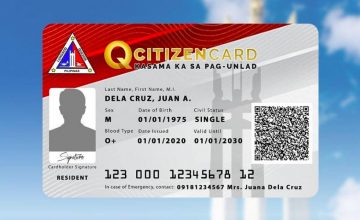Queer cinema has significantly evolved over the years, but there’s still an obvious lack of representation for certain subgroups and minorities. The mainstream industry has yet to portray the full spectrum of identities and intersectional experiences that exist within the LGBTQIA+ community, especially those involving queer people of color and individuals living in countries with oppressive laws and cultures.
Five Films for Freedom—a.k.a the world’s widest-reaching queer digital campaign organized by the British Council—aims to address this gap by sharing narratives that can create more visibility and inspire progressive change. “[This campaign] promotes rarely heard LGBTQIA+ stories from around the world and make them accessible to a global audience, particularly for people living in cultures where they cannot live or love as they would like,” said British Council Director of Film Briony Hanson in a press release.
This year’s lineup (which explores topics such as violence and security, love across borders, and shifting identities) is available for free streaming via the British Council Arts’ YouTube Channel from Mar. 15 to 26. But in case you’re interested in watching all five films on the big screen, the British Council partnered with the Film Development Council of the Philippines to bring free screenings at Cinematheque Centres from Mar. 21 (Manila) to 22 (Iloilo, Davao, Zamboanga, Nabunturan, and Negros).
From South Africa to Northern Ireland, these shorts offer a window into the lives of those queer individuals who are often overlooked—giving voice to their struggles and triumphs.
“Eating Papaw on the Seashore” (2022)
Guyana
This coming-of-age short film written and directed by Rae Wiltshire (and co-directed by Nickose Layne) follows the story of two Guyanese boys who find themselves falling in love with each other despite the conservative nature of their coastal village. Set against a backdrop of sun, sand, and sea, they navigate the challenges of living in a society that is still deeply homophobic. Will they learn to embrace their identities or just succumb to societal pressure?
According to Wiltshire, “Eating Papaw on the Seashore” aims to portray queer boys as human beings who don’t deserve to be ridiculed: “In Guyana, the idea of being gay is a joke. I [want] to reflect human beings on-screen. It [is] important to capture the humanity of a group of people who often do not feel accepted by society.”
“Buffer Zone” (2022)
Cyprus/United Kingdom
As much as the world is ceaselessly progressing, there are a lot of people who still stereotype soldiers as hypermasculine and heterosexual. But “Buffer Zone” by Savvas Stavrou challenges this notion by presenting an unlikely romance between two soldiers across enemy lines. Seeking an escape from their high-stress and oppressive environment, they both find refuge in music and love. It touches on the struggles of queer soldiers and how they navigate boundaries in conflict zones.
“Butch Up!” (2022)
South Korea
If you’re actively lurking on queer K-media stan Twitter, you’ve probably already heard about Lee Yu-jin. Her works have been invited to several LGBTQIA+ film festivals around the world, including her debut short film “A Good Mother.” Now, she’s back with yet another queer masterpiece “Butch Up!” and it revolves around Mi-hae—a fresh-from-a-break-up queer woman who quits her band after failing to deliver the appropriate emotions for their song “Oppa’s Girl.” The film depicts the complexities of gender expression, particularly in the Korean music scene, all while creating a relatable narrative every viewer can resonate with.
“All I Know” (2022)
Nigeria
In a country where same-sex marriage and amorous relationships are banned and criminalized, Dapo (a gay man) goes missing the same night he tells Ebube (his friend) over dinner that he’s hooking up with some guy after. Afraid of sending Dapo to prison for up to 14 years, Ebube decides against filing a missing person report—embarking on a personal mission to find his friend instead. Directed by Obinna Robert Onyeri, “All I Know” offers a poignant and sobering perspective on the discrimination and injustice the Nigerian queer community faces.
“Just Johnny” (2021)
Northern Ireland
“Jesus himself wore a dress.” Johnny (an only son) shocks his parents upon telling them he wants to wear a “princess dress” to his Holy Communion. While his father flat-out forbids it out of fear that his son would get bullied by his classmates, his mother is willing to go the extra mile to support him—even if it means confronting their parish priest. But how exactly would Johnny’s friends react to the situation?
This heartwarming short film directed by Terry Loane highlights themes of acceptance, individuality, and filial love. It also sheds light on the importance of breaking gender norms and promoting diversity in religious settings.
Read more:
These Asian queer romance series will make you go: ‘God, me when?’
In this A24 film, a childhood love shakes up the present
This psycho-thriller film premiering at the first-ever summer MMFF only took 3 days to be written
Still from “Butch Up!” (2022)
























Comments